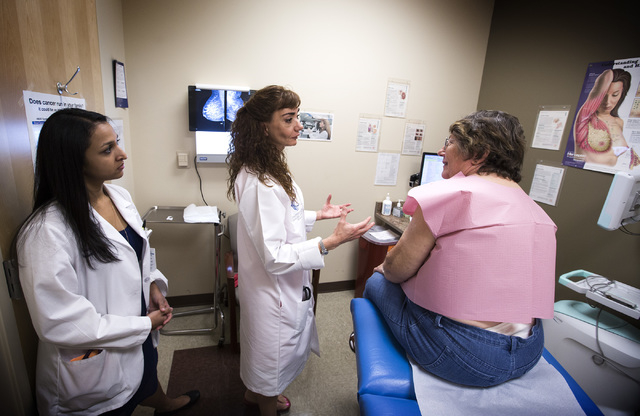Selecting which residency program to apply to is an arduous task. How does one decide which ones among the thousands of residency programs in US should he or she apply to? You cannot possibly apply to ALL the programs. While limiting the number of programs to apply to, also consider the fact that the costs go up considerably beyond 30 programs.
For example, if a medical graduate applied to 80 residency programs (this being the median number of applications submitted by an independent applicant in 2019), the cost of submission would be about $1800 (use the official residency fee calculator here). Also, it would be very difficult to interview beyond 12-15 programs because of travel costs, interview scheduling and your personal stamina.
It is very difficult to know how many programs to apply to without risking the chance of losing a potential interview by applying to fewer residency programs. This becomes even more challenging for an IMG.
As discussed in my previous blog, independent applicants [that is US citizen IMG, non-US citizen IMG, or former US medical graduates] applied to a median of 78 residency programs as compared to 39 programs by US seniors. This is to say that, independent applicants had DOUBLE the number of residency applications as that of a US senior.
The NRMP data table provide information on how medical graduates decide to apply to a residency program and rank a program for matching. Here is a summary of the top 5 factors from the NRMP survey (ranked in order of importance):
1. Desired location. Location, location, location! This is the most important factor for applicants to decide which program to apply to. This comes as no major surprise as you will be spending three or more years of your professional life, living, breathing and working in a hospital. What is it about the location that is so important? Everything! Consider the safety of the neighborhood where you would be living and where the hospital is located, having family and friends in the area, cost of living, rents, climate, time spent on traffic, ease of getting to and from your workplace, activities for yourself and family such as restaurants or jobs for spouse, schools for children are some of the essential factors in deciding a location.
For example, a friend of mine chose not to apply to New York City even though he knew of the many IMG friendly programs in that city as he was turned off by the high cost of living, questionable safety and traffic difficulties. This is a very personal decision, but an excellent starting point as your start to narrow down the list of programs were you intend to apply.
2. Perceived goodness of fit. There is a lot of subjectivity in deciding whether a program is a good fit for you are not. Some applicants prefer a small program that allows closer and more personal interactions with the teaching attendings as opposed to a much larger program in major teaching hospital where you maybe just a "person in a white coat". The goodness of fit is best assessed at the time of the actual interview day. A residency program with two or more IMGs is looked upon favorably by IMGs. So ask yourself if you will be happier in a program with 8, 20 or 50 residents.
3. Reputation of program and academic medical center program. Residency training at a reputable program is likely to increase your chances of landing a satisfying position after graduation, and more importantly helps you get into fellowship programs or academic careers. This is because of greater research opportunities in academic medical centers as compared to community hospitals.
Now this may be less of a concern if you choose to be in private clinical practice after residency graduation or are unable to get interviews because of your residency application (such as low USMLE scores, second or more attempts or long time since graduation). As alluded to in my earlier post on five reasons to pursue US residency training, training in an ACGME accredited program and obtaining board certification are adequate for one to have a thriving clinical practice. So, take it easy.
4. Collegiality among residents and teaching faculty and quality of educational curriculum. This may be difficult to judge just by browsing through a website. Some helpful information to learn about a program include fellowship match rates or boards passing statistics.
On the actual interview day, one should get a feel for the collegiality among residents. What is the morale of the residents? Do they look troubled at work? Are they willing to help each other out? Are many attendings approachable and easy going or are they malignant or aggressive? Do you think the program director would be a good friend for the next three years of residency (or even many years later)?
On the actual interview day, one should get a feel for the collegiality among residents. What is the morale of the residents? Do they look troubled at work? Are they willing to help each other out? Are many attendings approachable and easy going or are they malignant or aggressive? Do you think the program director would be a good friend for the next three years of residency (or even many years later)?
Look for any teaching initiatives or changes in educational curriculum (such as academic half days or point-of-care ultrasound) that the program is proud of. Are the chief residents and faculty responsive to feedback from the residents?
You surely have heard of the highly prevalent burnout and emotional distress among US resident physicians. Choose to train in a learning environment where your colleagues can look out for each other and the faculty is approachable and helpful to you as a person and a physician. This is very important. You want to be training at a place that is comfortable to you but at the same time that does not leave you stressed and emotionally drained. Try to find out how the program is invested in your well-being.
5. Work-life balance (or work-life integration). Again this is specialty specific. Find out if the program encourages or even actively participates in out-of-the-hospital social gatherings and activities such as the events found in my hospital. Look on Twitter or Youtube. Get a feel for the kind of documentation responsibilities while you take care of the patients. Also, look at the number of electronic medical record systems (for example, a VA hospital has a separate EMR system if you also round in the VA hospital or clinic). While this should not be a deal breaker, it is best to be fully aware of the extra effort you may need to put in.
TWO additional points to be noted:
1. Salary and benefits are very similar in all residency programs. This should not really be a consideration when choosing between ACGME accredited programs.
2. For IMGs and those requiring visas, visa sponsorship is of the highest priority (if you need a visa and the program will not offer you one, there is no way for you to work in that hospital). Visa sponsorship would be an important starting point for IMGs as they narrow down their list.
That’s all for now. Hope you like this blog. I would love to hear your thoughts and comments. Join the mailing list for the blog or my facebook groups and check out Ed4medus.com to learn more about personalized services to help you get into a US medical residency program.
Before you go: Here's your golden opportunity to have your voice heard. Write down your ONE question regarding your US residency program application, personal statement, interviews or anything that has been bothering you and keeping you up at night. You can reply at the end of this blog or post a message at my Facebook page.
The top 10 popular questions will be featured on my next blog posts at https://ed4medllc.blogspot.com/ and the winners will receive a coupon each for a FREE practice interview at Ed4medus.com ! Put those thinking caps on and hurry up!
That’s all for now. Hope you like this blog. I would love to hear your thoughts and comments. Join the mailing list for the blog or my facebook groups and check out Ed4medus.com to learn more about personalized services to help you get into a US medical residency program.
Before you go: Here's your golden opportunity to have your voice heard. Write down your ONE question regarding your US residency program application, personal statement, interviews or anything that has been bothering you and keeping you up at night. You can reply at the end of this blog or post a message at my Facebook page.
The top 10 popular questions will be featured on my next blog posts at https://ed4medllc.blogspot.com/ and the winners will receive a coupon each for a FREE practice interview at Ed4medus.com ! Put those thinking caps on and hurry up!


















